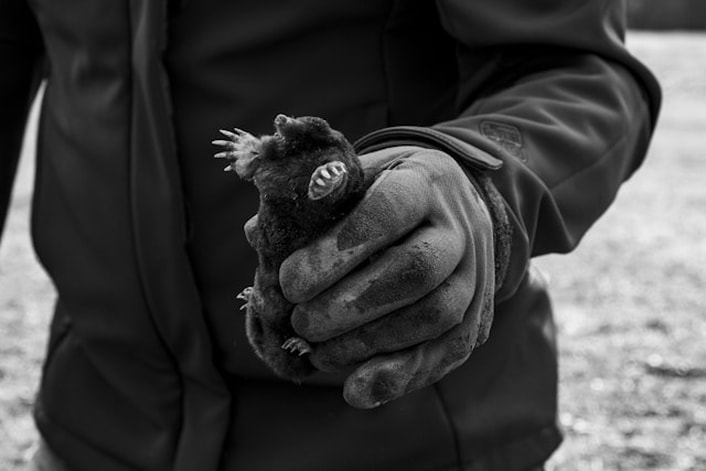|
* The RSPB culled 345 moles at one of their reserves in 2022.
* In this age of rapidly diminishing wildlife, shouldn't the RSPB be setting an example - not joining in with the mass killing of native wildlife? The RSPB and the mass mole cull The RSPB culled the moles at one their 200+ reserves. Their annual vertebrate control summary published in December, states that they killed 345 moles at a single location, though they don't specify which one, (it might be helpful, for clarity and transparency, for the RSPB to include locations in their data...) The reason they give for culling the unfortunate mammals is a "listeriosis risk in cattle". Now, here's where the whole thing gets messy because there are many differing opinions over the science behind the claim that moles are a significant cause of listeriosis in farm animals, some suggesting that the risk is overestimated. The soil from a mole hill can contain listeria bacteria, and if it contaminates grass consumed by animals, there is a potential risk that the animals can contract the disease. Some say this risk can be mitigated simply by flattening the mole hills as they appear, many others say that moles can be moved along harmlessly by using simple cost-effective sonar deterrents - or just left alone. Futile exercise Regardless of the RSPB's motives for killing the moles, it's pretty obvious, I think, that removing that many moles from a location will merely encourage other moles to recolonize the area - which means more molehills and more "risk" - whether that risk is real or not. So it's perhaps something of a futile exercise, albeit one resulting in masses of dead wildlife, especially if the lethal control is ongoing. The RSPB should know better and I wonder who advised them to carry out the cull, which many would say was unnecessary - and unethical. Not just moles.... The RSPB say that they "see the killing or removal of vertebrates as a matter of last resort..." but nevertheless they saw fit to cull not just the 345 moles, but many other species too at their reserves, for example 400 foxes and nearly 1000 red deer. We are in the midst of a biodiversity crisis. While culling a few hundred moles might only have a local impact on the conservation status of this animal, the RSPB's decision to kill them remains highly questionable, both ethically and morally. The RSPB no doubt do a great deal of good work across their reserves, but I would suggest that culling hundreds of a single species at one of their sites - in order to pursue what appears to be an experiment in nature management - is lacking moral clarity and is certainly out of touch with current efforts to preserve what survives of our fast diminishing native fauna. There might - rarely - be rational reasons to control some animals in some circumstances, but culling hundreds of moles seems entirely avoidable and unnecessary. More legal protection for moles Many environmentalists agree that moles, one of our most loved native mammals, desperately need more legal protection. Unlicensed lethal control of these diminutive creatures is prohibited in many civilized countries like Germany and Finland, but here in the UK any individual or 'pest controller' can embark on a killing spree with very few restrictions - and no consequences. Moles play an essential part in maintaining a healthy ecosystem and it's high time these amazing animals were afforded more legal protection in this country - then even the likes of the lofty RSPB would need a licence before even contemplating the massacre of our treasured wildlife.
0 Comments
Leave a Reply. |
If you appreciate what I write about, please consider showing your support by buying me a virtual coffee!
Click the button below! Thanks :) Archives
July 2023
|



 RSS Feed
RSS Feed